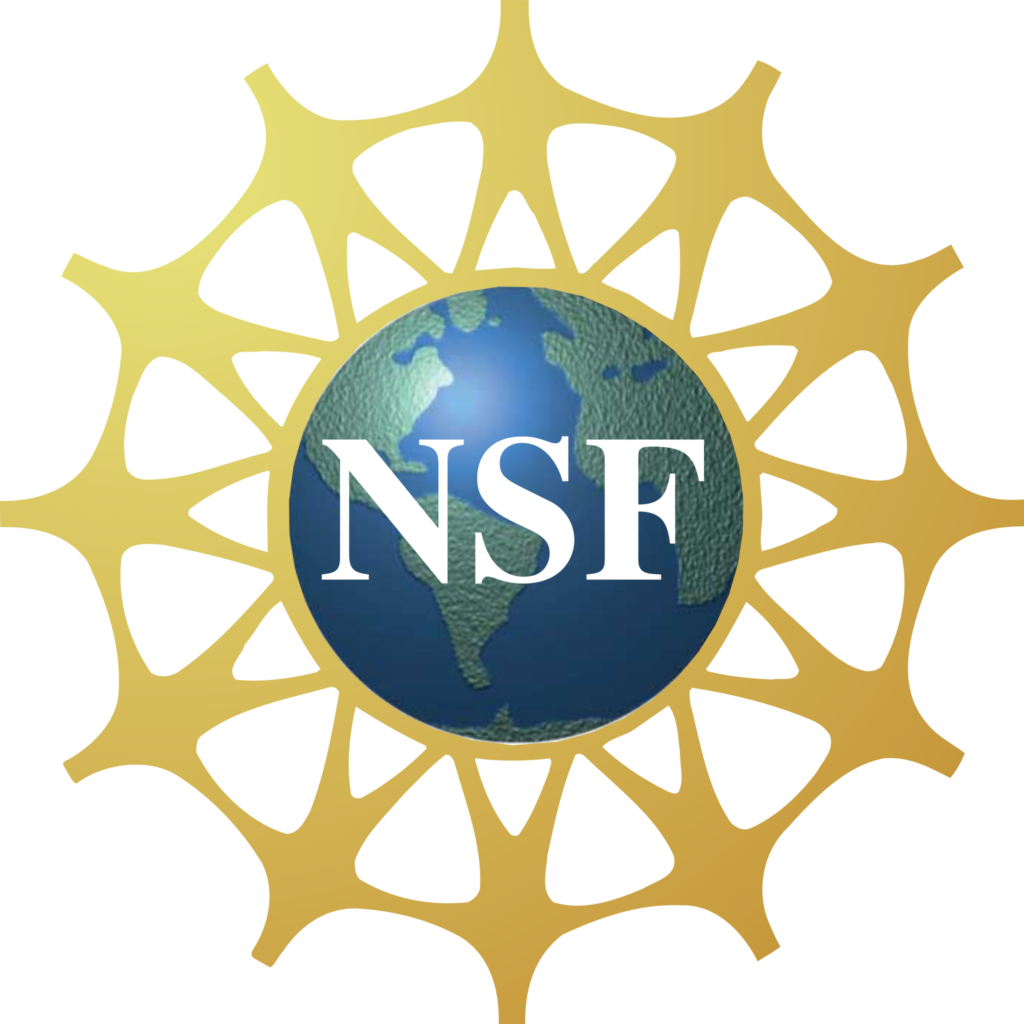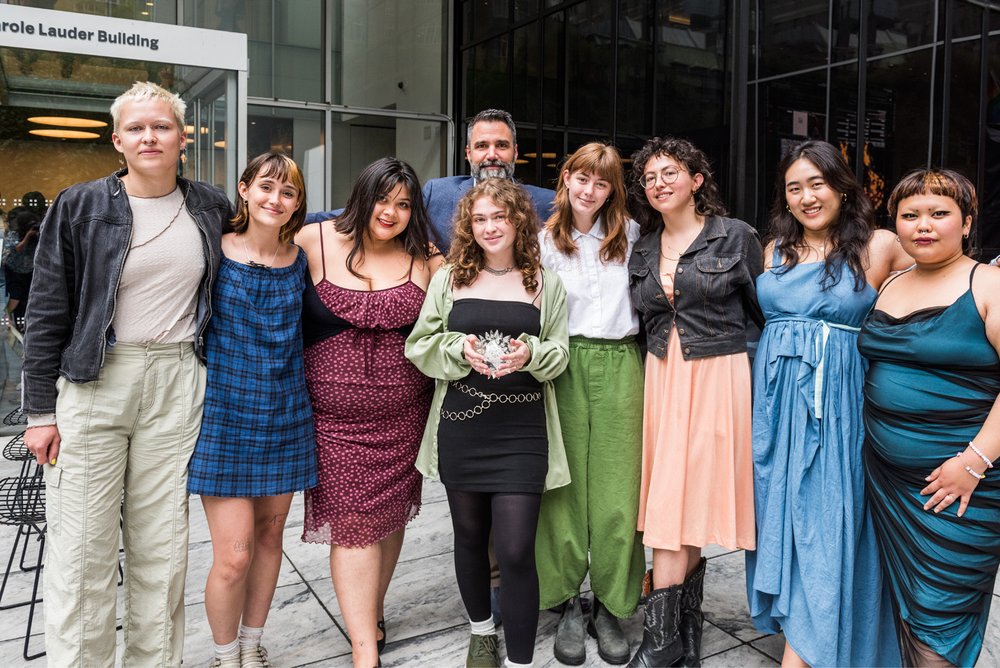About:
The MICA Biofabrication initiative is an active exploration of sympoietic practices–making-with other living organisms. The unique laboratory places emerging biotechnologies, including genetic engineering, biomaterial development, and 3D bioprinting, into the hands of artists and designers. The curriculum, which is led by IS faculty member, Ryan Hoover, explores the ways that living systems make things and how we can work with these systems in new ways. Through collaborations across disciplines and species, we combine a range of traditional, digital, and biological approaches that foster new modes of inquiry and explore solutions to the tremendous challenges facing life in the Anthropocene. Informed by a study of life-science, discussion of social and philosophical topics, and hands-on experience in the lab, we build new practices that uses biotechnology poetically and considered our future together critically. Students and faculty are highly engaged in an international community of thinkers and practitioners through the Biodesign Challenge, interdisciplinary conferences, and multi-institution research projects.
News:

MICA wins the “Outstanding Narrative” Prize in the 2024 Biodesign Challenge
To explore their question “How can we practice care with our collaborators and each other to craft resilient symbiotic communities?” the Symbiotic Stitches project grew and assembled a multi-material multi-species bio-quilt. The project resonated with judges and attendees of the Biodesign Summit held at MoMA and Parsons in New York this June.
National Science Foundation Convergence Accelerator Grant
With our collaborators at UMCES and industry partners, our proposal for the NSF Convergence Accelerator program has awarded funding. This Phase I grant will support planning for the full scale, carbon-capturing, biomanufacturing of valuable commodities, based on research the team has conducted over the past five years.
MICA wins the 2023 Biodesign Challenge
With their project exploring bacterially-produced mineral coatings, the Mother Nacre team was selected as the Overall Winner at this year’s Biodesign Summit held at the Museum of Modern Art in New York. The project gracefully interweaves complex technical, personal, and ethical topics to address how we live with each other, other organisms, and the plastic objects from our past.

Bay Journal : Can bacteria help restore the Chesapeake Bay’s oysters?
This story in the Bay Journal by Jeremy Cox takes an in-depth look at the project being pursued in MICA’s Co-Lab course, in collaboration with UMCES scientist Dr Mathew Gray, exploring biocement structures for oyster habitat restoration.
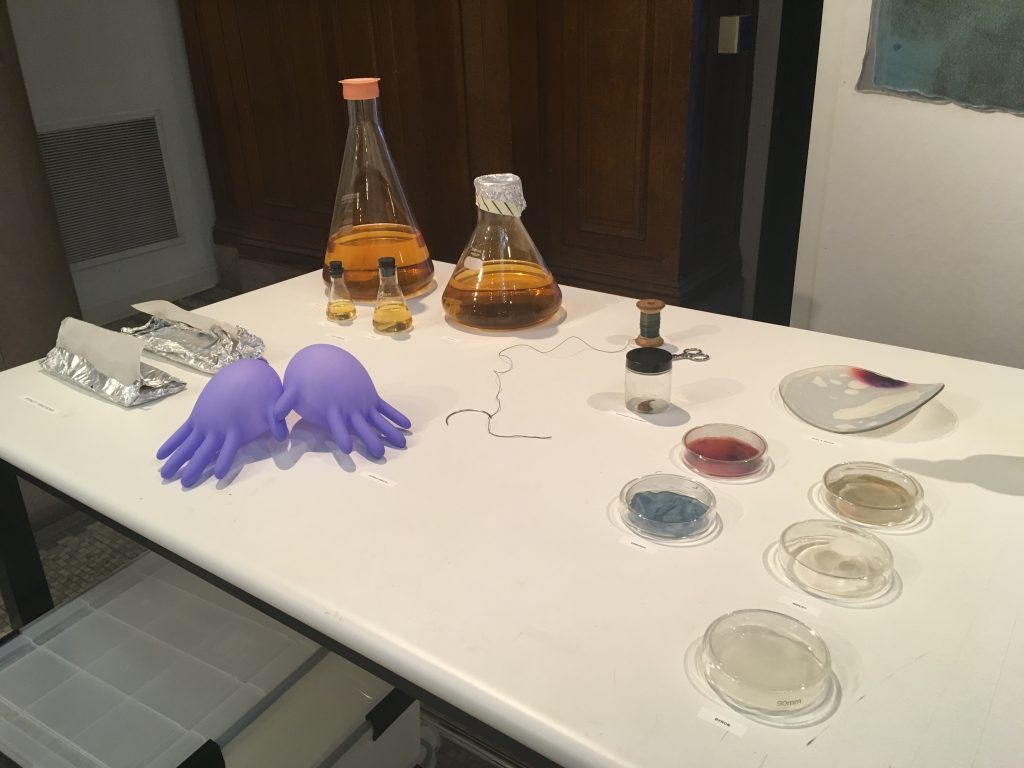
BmoreArt: Blurring the Boundary Between Art and Science
This thoughtful essay in BmoreArt by Nora Belblidia discusses the approach to biofabrication at MICA and it also highlights student work from the recent Sympathetic Biology exhibition and the work of, MICA IS alum, Rian Hammond.
Curriculum
Intro to Biofabrication
In the thousands of years since humans left the stone age, we have developed an astounding collection of skills and technologies for fabrication. Nature, however, has employed billions of years of R&D to develop far more sophisticated means of making things. Biofabrication is the combination of these technologies. Learn more about this class.
Grow the Future
Advances in the life sciences are shifting our understanding of living systems, what it means to be human, and how we all live together now and in the future. Artists and designer have a vital role in envisioning that future and developing the technical and theoretical tools to help carry us to the most flourishing versions we can imagine. Learn more about this class.
Co-Lab
Co-Lab is an experimental class bringing students and faculty together around a common research project. The research team is developing biocement as a substrate for oyster habitat restoration. Learn more about this class.

Research
Student have the unique opportunity to participate in externally funded research on biomaterials, new biofabrication methods, and applications in ecological restoration.
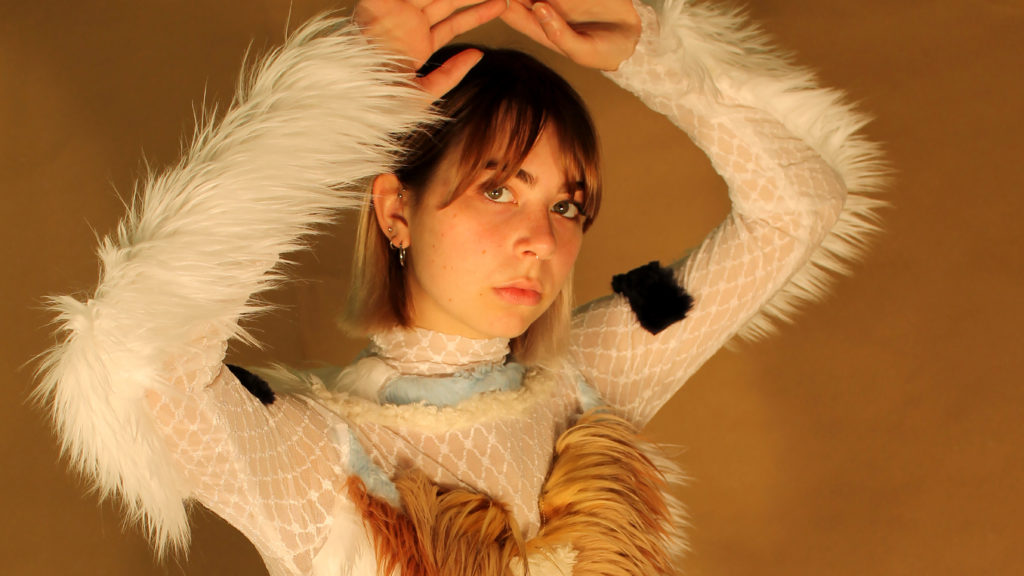
Student Projects
Students throughout the curriculum have created amazing projects in range of media that explore salient issues of our time.
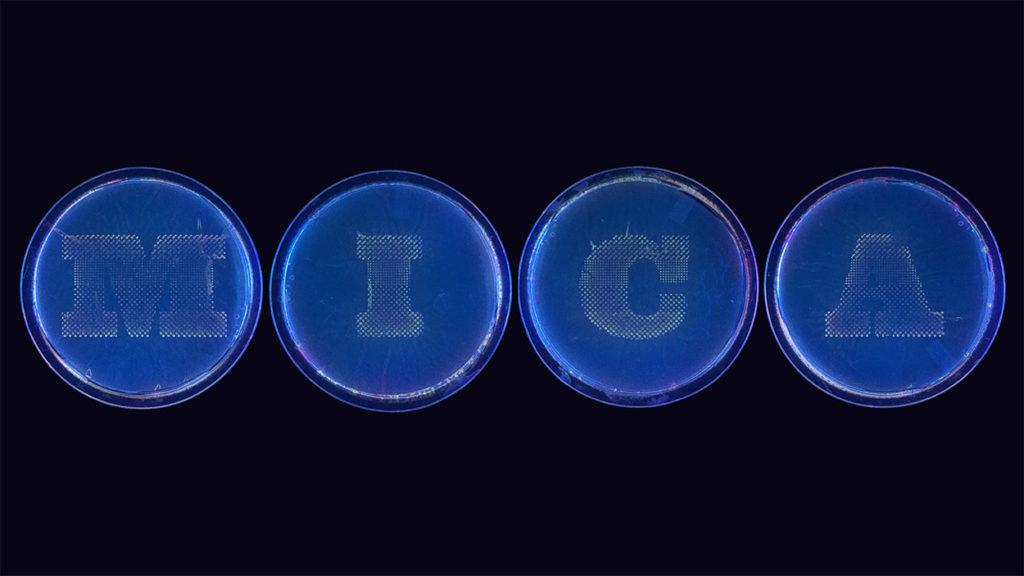
Biofabrication Curriculum
There are a series of courses taught at MICA in the field of biofabrication.
